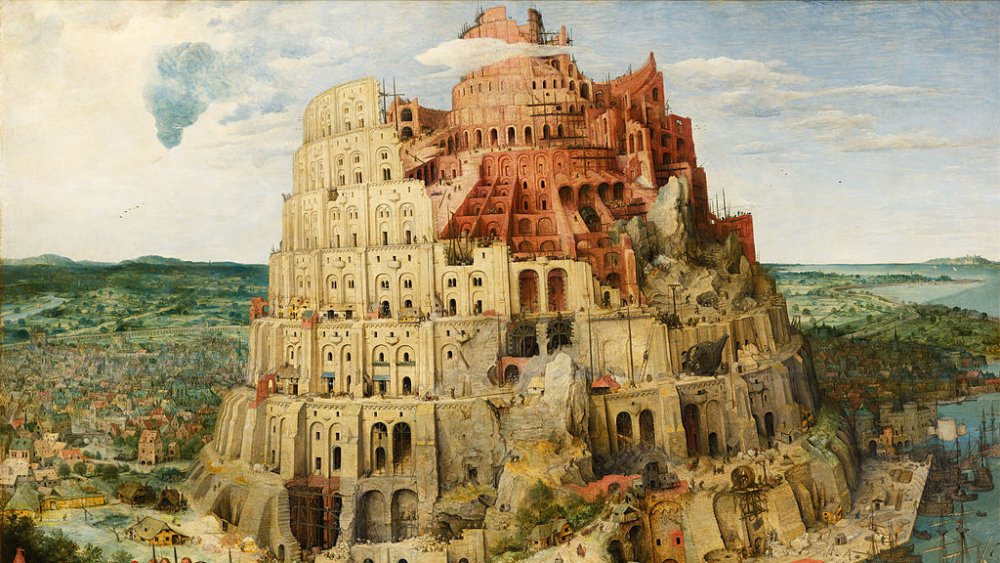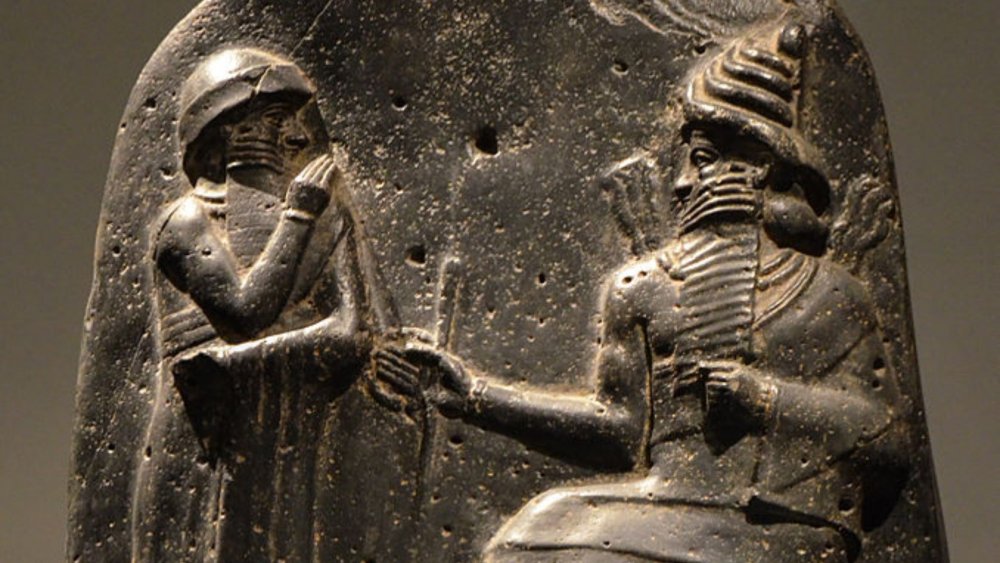We Now Understand Why The Babylonian Empire Fell
If ancient Mesopotamia was the cradle of civilization, Babylon was arguably its favorite baby. Once a rich cultural hub and now a priceless slice of history, the fabled city is situated 60 miles south of present-day Bagdhdad in Iraq, via Live Science. Nowadays, its name is synonymous with opulence and moral decay, but to quote the Evening Standard, "Babylon wasn't so bad."
Some of the great eggheads of antiquity cracked secrets of astronomy, trigonometry, and physics in Babylon. Biblically-inclined readers might recall the tale of the Tower of Babel, said to be the reason human beings babble in different languages. That's pretty neat. Babylon also boasted the Hanging Gardens, a place that may have never existed but which has had a real and lasting impact on how people imagine the past. Babylon, though, was much more than a city of ancient wonders: It was once the heart of its own thriving empire. But like all good (and no-so-bad) things, it came to an end. What toppled this once towering specimen of civilization?
One empire's fall is another empire's rise
The Ancient History Encyclopedia says Babylon was born sometime before the rule of Sargon of Akkad, which lasted from 2334-2279 BC. But the city didn't mature into an empire until Hammurabi came along in the 18th century BC. Hammurabi literally laid down the law. His Hammurabi code became one of the most important texts in ancient Mesopotamia, and arguably the world. A compilation of 282 rules, via History, the code marked one of the first documented instances of lex talionis, the "eye for an eye" brand of justice.
Hammurabi had an eye for brutality. As summarized by Live Science, he was a big fan of the death penalty, punitive amputations, and forcing unfaithful wives to drown themselves in rivers. On the other hand, he also built a bunch of swanky canals and temples and excelled at diplomacy. He became so essential to the Babylonian Empire's prosperity that when he died, the empire essentially perished with him. After his demise, the Hittites smelled blood in the water and sacked the capital. Then came the Kassites, followed by the brutal Assyrians.
Babylon would be reborn under Nebuchadnezzar II in the 6th century B.C. However, his Neo-Babylonian Empire was ultimately toppled by the ascendant Persian Empire.

